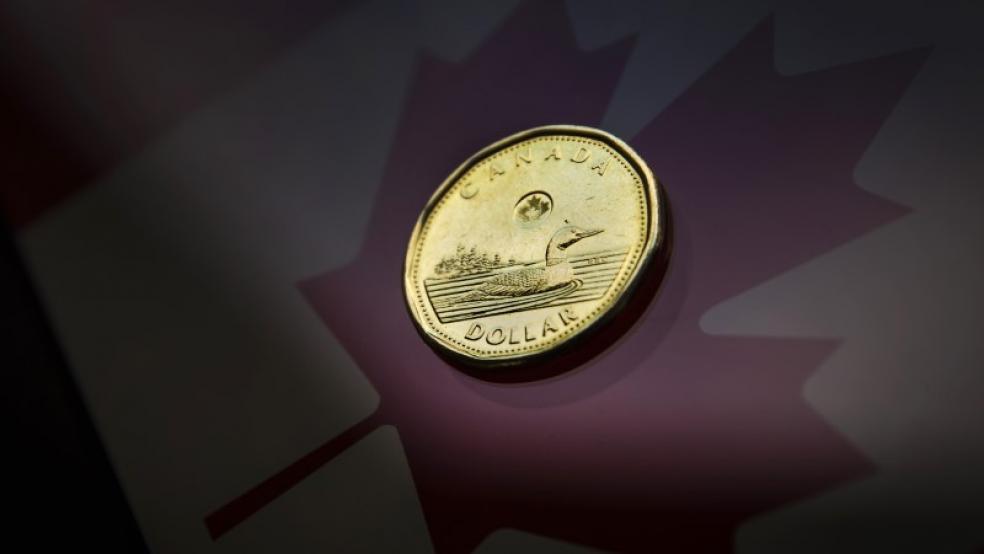(Reuters) - The Canadian dollar will not gain back any ground against its U.S. counterpart in the coming year as the resource-dependent economy feels the pinch of low crude oil and commodity prices, a Reuters poll found.
Canada is the world's fifth largest producer of oil and a steep slump in its price since June last year has led to falling revenues at energy firms and pushed the currency down 10 percent in 2014. It has lost another 8 percent so far this year.
The survey of 45 foreign exchange strategists predicted the Canadian dollar will trade at C$1.26 in a month and C$1.28 by end-June. It was trading at $1.252 on Thursday.
Analysts expect the currency, known as the loonie, to hold close to C$1.27-C$1.28 between six months to a year.
"The impact from lower oil prices is going to be more pronounced and a bit more sustained in the market than the Bank of Canada seems to think at this point," said Robert Lynch, currency strategist at HSBC.
While a lid on oil prices - U.S crude
is predicted to average $53.6 a barrel in 2015 - will pressure the loonie down, divergent monetary policy between Canada and the U.S. is also cited as a major reason for the currency's weakness. The U.S. Federal Reserve is expected to hike interest rates this year. The latest consensus is for a move in September, while the Bank of Canada is predicted to hold rates. Strategists said the spotlight is now firmly on Canada's economic slowdown, a lingering fallout of the over 60 percent drop in crude prices between June 2014 and this January that has led to job cuts at energy firms. Canada's economy contracted for the second month in a row in January and economists predict a further slowdown as the effects of lower oil prices continue to pass through.While the BoC unexpectedly cut interest rates in January as an "insurance" against falling oil prices, that has reignited fears of a borrowing binge by overindebted households - a risk to the country's inflated housing market that some fear is on the brink of a collapse. "With house prices at record high levels relative to household incomes, regions hit hardest by the slump in oil prices will experience sharp house price corrections," Capital Economics wrote in a research report.While the central bank is not expected to cut rates again, forecasters in a separate Reuters poll flagged the risk of that happening at 40 percent, especially if the economy does not improve. "Even if the Bank of Canada don't cut, and I don't think that is entirely off the table, the Federal Reserve is hiking by September and we will see some U.S. dollar strength which will help in keeping the Canadian dollar weak," said Andrew Grantham, senior economist at CIBC World Markets. (Polling by Khushboo Mittal and Kailash Bathija; Editing by Ross Finley and Chizu Nomiyama)



